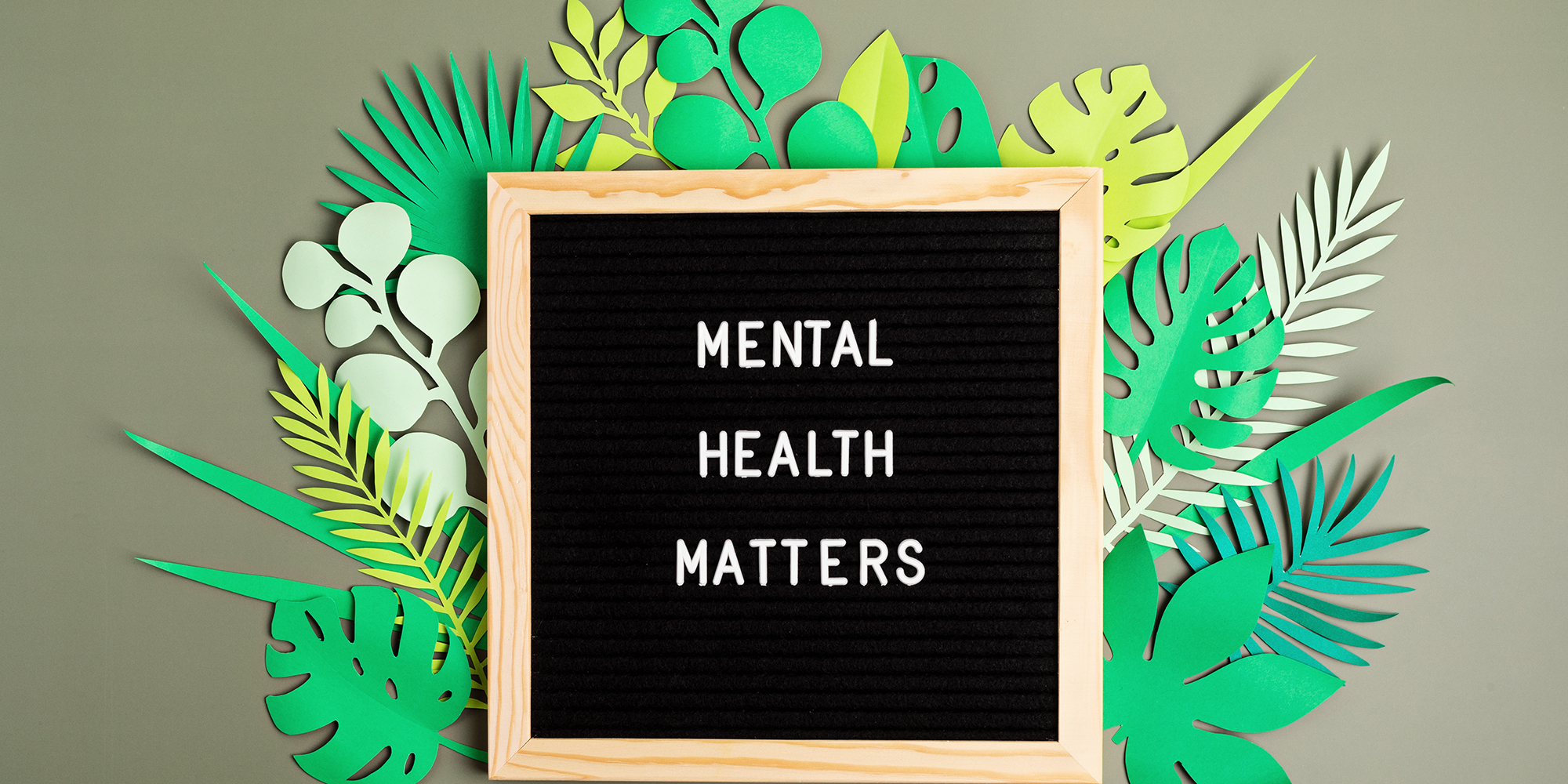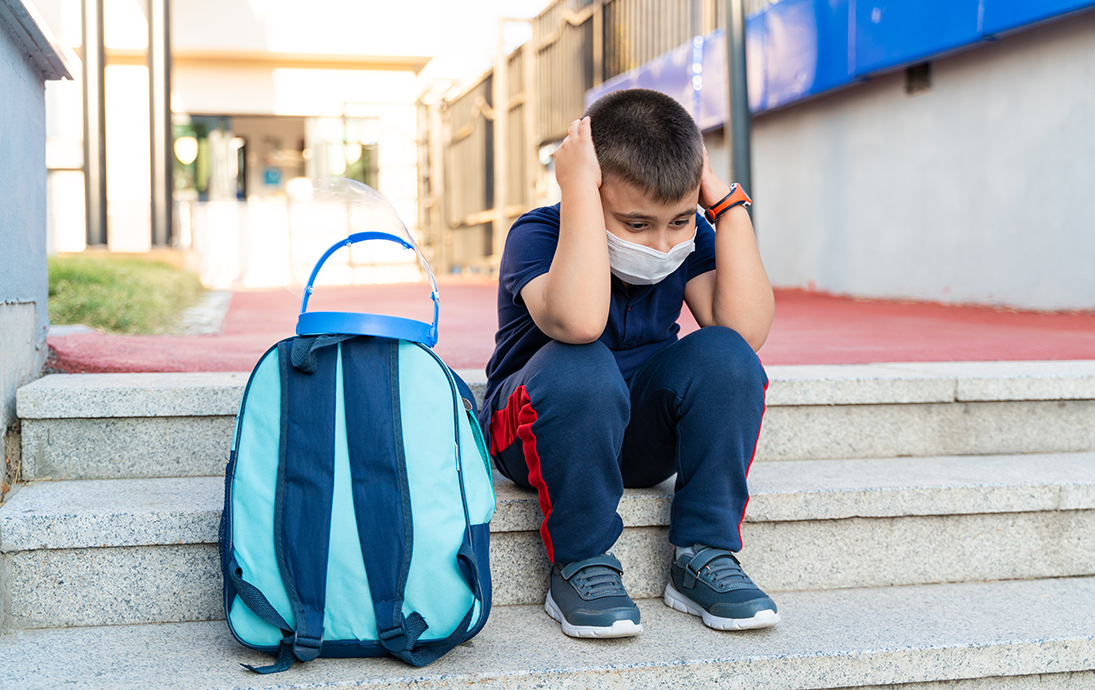
Mental health is a key component to your overall health as it affects how you think, feel, and act in your everyday life. Regardless of age, race, or gender, mental health is something we all have in common and need to address to maintain holistic well-being. Mental Health Awareness Month is a great opportunity to remind us that mental health is essential to living a fulfilling life and that those with mental health issues are heard and understood, and mental illness is addressed and treated just as any other physical ailment. Let’s all take steps towards better understanding and erasing the stigma associated with mental health.
What is Mental Health?
Mental health is a term that many of us have heard, yet we may not fully understand the relevance or importance of. According to mentalhealth.gov, mental health includes our emotional, psychological, and social well-being. Mental health is vital as it effects both children and adults and will continue to do so throughout life. Mental health covers a wide spectrum and consequently can be impacted in a variety of ways. There are many factors that can influence your mental health, including:
- Biological factors, such as genes or brain chemistry
- Life experiences, such as trauma or abuse
- Family history of mental health issues
Mental Health and Your Overall Health
As mental health affects various parts of your social, mental, and emotional state, it also plays a huge role in your physical health. As the mind and body are interconnected, it’s important to balance both your mental and physical health to achieve true well-being.
People with a mental health illness are more likely to have a preventable physical health condition for a variety of reasons. Genetics that could be the root cause of a mental health illness may also be the reason for a physical health problem. Mental health can also influence energy levels, leading to a lack of motivation to take care of yourself. Everyday tasks become extremely difficult because the motivation simply isn’t there. This also makes it tough to concentrate or plan future appointments for care, making help that much further away. These negative effects will continue to spiral affecting your overall health, which is why it’s important to recognize the signs of mental illness and get assistance as soon as possible.
Signs of Mental Illness
Mental illness comes in many shapes and sizes, often making it difficult to know when someone is suffering. Here’s a few warning signs to look for:
- Eating or sleeping too much or too little
- Pulling away from people and usual activities
- Having low or no energy
- Feeling numb or like nothing matters
- Having unexplained aches and pains
- Feeling helpless or hopeless
- Smoking, drinking, or using drugs more than usual
- Feeling unusually confused, forgetful, or on edge
- Yelling or fighting with family and friends
- Having persistent thoughts and memories you can't get out of your head
- Hearing voices or believing things that are not true
- Thinking of harming yourself or others
- Inability to perform daily tasks like taking care of your kids or getting to work or school
To prevent further mental health complications, it’s important to recognize these signs and get help as soon as possible. These symptoms can easily snowball and create more problems making it increasingly difficult to return to a state of mental well-being.
Treatment Options
There are several tactics you can take to combat mental illness. Some of these methods you can practice by yourself, others require the assistance of a friend or medical professional. Every battle somebody goes through is unique in their own way, so what works for one may not work or be as effective for another.
Exercise- As you know, your mental health is tied to your physical health. Exercising is one way to keep you physically healthy as well as improving your mental well-being. By exercising, your body releases feel-good chemicals called endorphins which assist in reducing stress and improving well-being.
Nutrition- Eating well can also improve your overall well-being. Our diet influences many aspects of our mental and physical state. What we eat largely impacts the development, management, and prevention of several mental health conditions.
Support Group- A support group is a great way for people with similar experiences to guide one another toward a common goal. These groups provide a great opportunity for people to share their feelings, develop coping strategies, and to see that they are not alone.
Therapy- One conventional way of treating mental illness is thorough psychotherapy. The American Psychiatric Association describes psychotherapy (or talk therapy) as a way to help people with a broad variety of mental illnesses and emotional difficulties. This form of therapy explores the thoughts, feelings, and behaviors of the patient while aiming to improve their overall well-being.
Medication- An effective way to assist in recovering from mental illness is medication. Although there’s no guarantee for it to cure mental illness, medication paired with psychotherapy is an extremely effective combination of assistance to promoting recovery.
Our part in better mental health for all
Let’s all take time during Mental Health Awareness Month and throughout the entire year to remember that good mental health is essential to living a fulfilling life. Take steps to understand mental illness, erase the stigma associated with the illness, and help those you may know suffering get the help and treatment they need.


